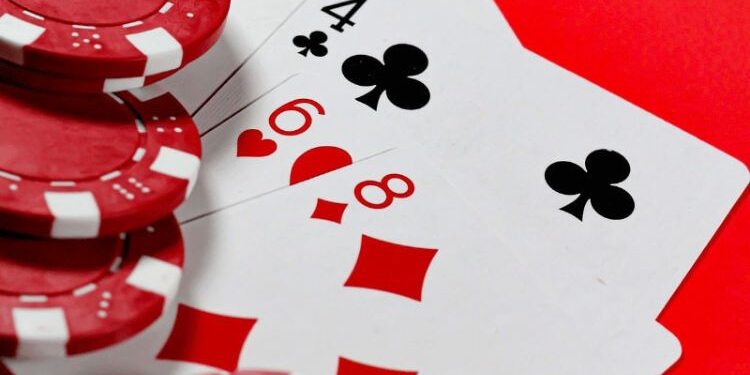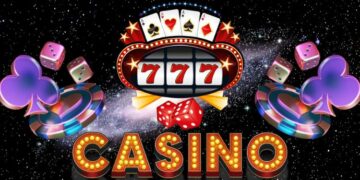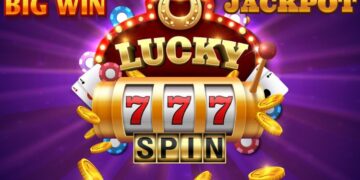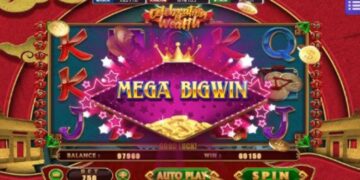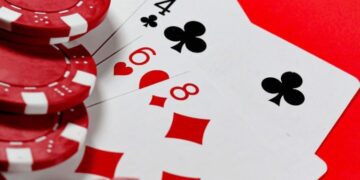A slot is a dynamic placeholder that either waits for content to be added (a passive slot) or calls out to a renderer for it. A slot and scenario work together to deliver content to a page. When the first slots were invented, they were relatively simple. Now, they are complex machines with a variety of payline patterns, game rules, and symbols. It can be difficult to keep track of all this information.
Symbols
As slot games continue to evolve and advance, they often include a variety of different types of symbols. These icons offer a visual interpretation of the computer-generated results and can trigger bonus rounds, which can be fun, interactive, or even lucrative. They can also increase the size of winning combinations, depending on their type. Symbols in slot games vary from game to game, but most share common features. The earliest slot symbols were suit cards, horseshoes, and liberty bells, which Charles Fey used to develop his first gambling machine. Later, they evolved to include fruits, which corresponded to different flavors of gum, and bar symbols, originally designed to mimic gum packets.
Wild symbols act as a joker in slot games, replacing other symbols to make winning lines. They can be stacked, sticky, expanding, or multiplier wilds and are a great way to spice up your play. But remember, they can’t replace Scatter or Bonus symbols.
Paylines
Paylines in slot games are the lines that run across the reels and determine how many winning combinations a player can get. They can be straight or take a zig-zag shape and can be fixed or adjustable. A fixed payline game will have all of its paylines covered by every bet, while an adjustable one allows players to select how many paylines they want to activate.
In most slots, the paylines are triggered from left to right. However, some are exceptions and will pay a win regardless of where the symbols fall on the reels. The more matching symbols you have on a payline, the higher the payout. But don’t make your decision to play based on the number of paylines, as the volatility and RTP of a slot are more important factors. It’s best to try a few different types of slot games and see which ones you like.
Bonus Rounds
A bonus round in slot games is a separate mini-game within a game that gives players an additional chance to win prizes and rewards. These special rounds are triggered when specific combinations of symbols or special symbols appear on the reels and can offer anything from free spins to a jackpot.
The rules of bonus rounds vary between different slot games, but most require players to land a specific number of scatter symbols to activate them. This information can be found in the paytable of each game. Some bonus rounds also feature interactive mini-games that involve skill or decision-making. Bonus rounds are a beloved part of slot games that allow players to break away from the standard spinning reels and engage in unique mini-games. They can include pick-and-click, cascading reels, or other immersive features that offer players a new and exciting way to win big prizes.
RTP
RTP is a useful indicator of how much a slot game will pay out over time, but it doesn’t tell you what you’ll win in a given session. That’s because winning in a casino isn’t about making money, but about having fun and testing your luck. Aside from RTP, other factors to consider when choosing a slot include the graphics, theme and gameplay. Themes should be compelling and recognizable to the player, while high-quality graphics and immersive sound effects will enhance enjoyment. Another important factor is the volatility of a slot, which determines its risk level and payout frequency.
Some of the best RTP slots feature a variety of innovative features, such as progressive multipliers, sticky wilds and symbol transformations. They also offer Giga Spins, instant prize coins and new elements such as jumping jam jars to increase your payout amounts. Players should also look for high-rating slots that offer a variety of bonus rounds and a chance to trigger a life-changing jackpot.
Conclusion
A slot is an assigned position in a group, series, or sequence. It can also refer to a specific job opening, such as the chief copy editor’s slot at the Gazette. In a slot machine, players insert cash or, on ticket-in, ticket-out machines, paper tickets with barcodes, and activate reels to win credits based on the pay table. Some slot machines have Wild symbols that can substitute for other symbols to complete winning lines.
